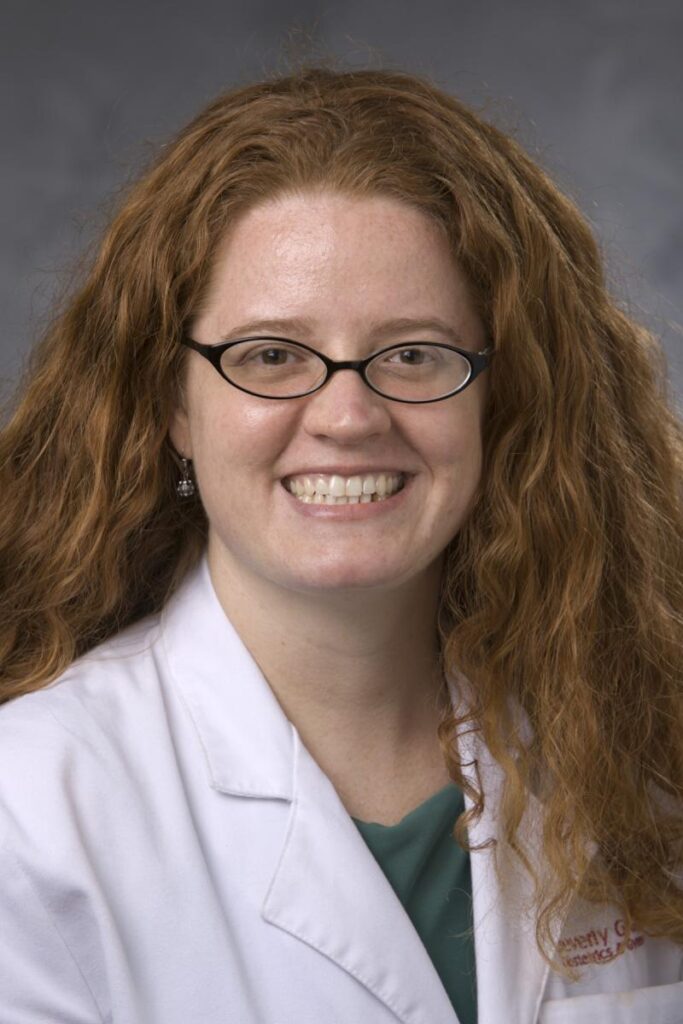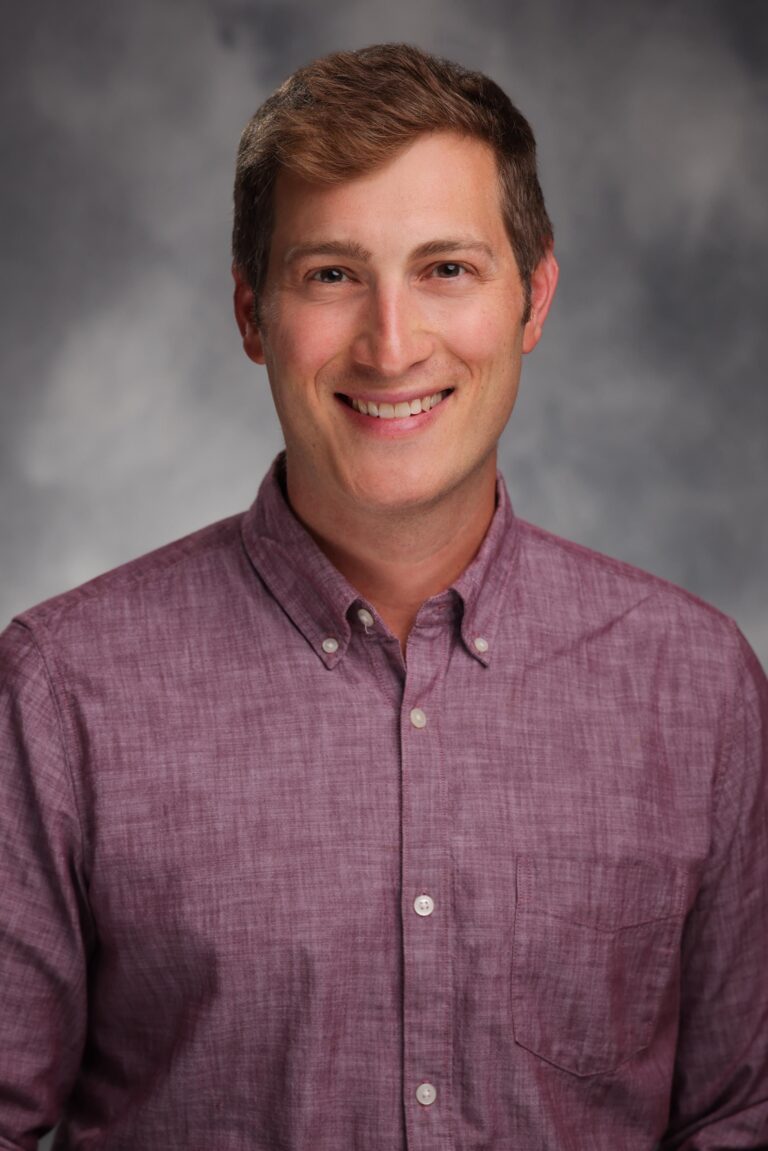On June 24, 2022, the Supreme Court of the United States ruled in the case of Dobbs vs. Jackson Women’s Health Organization, overturning a federal, constitutional right to abortion. This opened the doors for individual states to ban abortion care, create intentionally confusing and dangerous bans on health care, and invent unnecessary barriers and burdens on those seeking care. In addition to care-seekers, it has deeply affected care-providers and clinic staff – creating both professional and personal upheaval and adversity. Though, as challenge often does, it has also brought space for faithful reflection, untapped strength, solidarity, and shared humanity.
OB-GYNs of faith from North Carolina and hosts of the podcast Outlawed, Drs. Jonas Swartz and Beverly Gray, reflect on three years in a “post-Roe” country, their own state of North Carolina, what they have seen on the front lines of reproductive care, and how they look toward the future.

Dr. Beverly Gray, M.D.
The three years since the Dobbs decision have been such a turbulent time of change – shifting laws, shifting landscapes of care, so many people working so hard to get people what they need. Rather than a consistency and standard that care providers can follow, it’s different from state to state, varying in degree from states with total abortion bans where the focus is on helping patients navigate to care to states supporting access to all types of reproductive care.
Here in North Carolina, we’re smack dab in the middle of all of it, with a changing landscape that is intentionally confusing. When changes to the law came in 2023, it was a low point for our team. We had the ability to provide care ripped away overnight. As we worked with teams across our institution to figure out how to accommodate the law to provide care, it was clear that many people felt, as we do, that this care is important. It demonstrated that people really care about what we’re doing here, people care about each other’s well-being.
To me, it has felt a bit like the Covid-19 pandemic. Then, we learned how to troubleshoot and problem-solve, to adapt, and to innovate. Those skills have come in handy since the fall of Roe vs. Wade. It’s another catastrophe to the health care system, taking a toll on patients and providers alike.
Every little change or barrier is intended to wear us down. Providers are drowning in bureaucracy and paperwork, they are fearful that they will be targeted, that their ability to practice any kind of care will be taken away. Patients experience delays in care, they have both heightened and extended decisions and urgency, which brings additional anxiety and stress.
The situation has been described as a marathon, not a sprint. I think of it as a relay race. There are times when we go full speed ahead, times when we rest and someone else carries the baton. If you can carry one thing forward, you have made a contribution. And you depend on your colleagues, peers, and community to help get you through.
We’ve seen the best and worst of human nature and behavior. Through a lot of ups and downs, there are people doing the work who are truly phenomenal. Being in the South, a lot of patients factor their faith into all of life’s decisions. Many ask if god is going to forgive them. I talk about how to address that question with my students and colleagues. Many of the values that I learned as a child in church I bring to my practice – kindness, loving care, how and why I show up. I tell them that god knows your heart and your life, that they don’t have to ask for forgiveness because there is nothing to feel guilty for, that nothing can separate them from the love of their god. I think it’s important to try to talk to people in a way that they can receive it.
As for the future, I have a level of practical optimism. The last few years have opened up so many conversations, so many opportunities to break things apart and put them back together in a way that makes more sense. We have to think about the best ways to get care to people and people to care full stop. There are new and diverse perspectives and viewpoints at the table. We’re creating access and I maintain a hope that we can rewrite the world of reproductive care.
The Dobbs decision led to huge shifts in how we care for patients needing all types of reproductive healthcare. In North Carolina, we initially had greater access than our neighbors and so time and energy was spent expanding our capacity to care for patients from other states and helping to support providers in more restrictive states with resources to help patients get care. When our state implemented a more restrictive abortion law, we had to shift again and spend time figuring out how we could still provide the care that patients need.
Dobbs created fear. Patients fear that they simply will not be able to access the care that they need. They also have to work harder for that care, navigating constraints and questions, some traveling out of state, arranging and paying for childcare, worrying about additional expenses for hotels, flights, etc. That stress is palpable for patients and for care teams.
Without the backstop of federal protection, it feels like anything can happen. I want to be able to do my job, to care for patients, to educate the next generation of providers. But it feels like every piece of that can be taken away. It’s been really stressful.
At the same time, I have felt supported in my professional and personal community for the work I do. Abortion is at the forefront of a national conversation. People feel compelled to be public and open about their support for abortion care. And that gives me hope.
Especially living in the South, people’s faith and religious communities are important. Patients are often actively putting their reproductive decision-making in the context of what they’ve heard and believe from their church. I’m Jewish, so though I often don’t share the faith of my patients, I understand that religion can provide a baseline set of values people go back to at difficult times and use to make decisions. Faith leaders and faith communities can make a big difference in the comfort and safety of reproductive health decisions.
We can’t go on like this forever. The current laws in our country don’t fit with a popular opinion that supports access. The environment that has been created doesn’t fit with what people believe and what they want. Forcing people to forgo care or undertake great burdens to receive it doesn’t make health, economic or moral sense. I have to hope, and I do think, that we will get back to something better. It just takes time.

Dr. Jonas Swartz, M.D.

